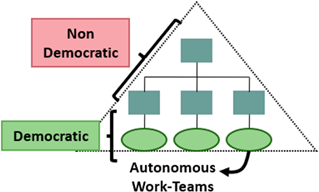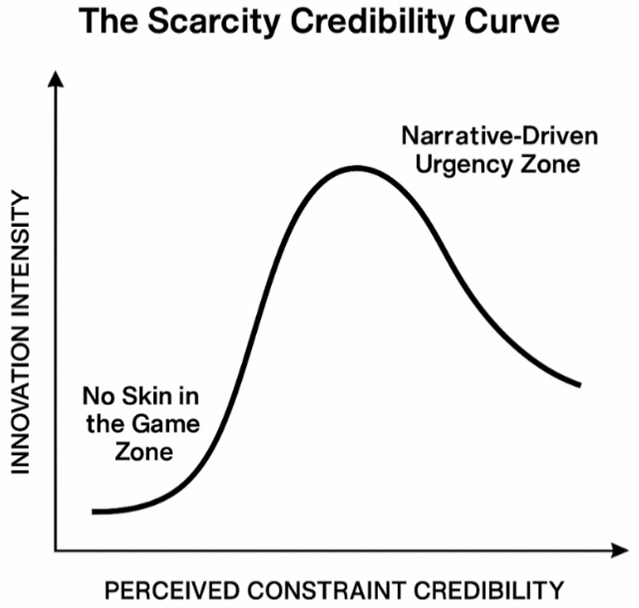
Asia Pacific Academy of Science Pte. Ltd. (APACSCI) specializes in international journal publishing. APACSCI adopts the open access publishing model and provides an important communication bridge for academic groups whose interest fields include engineering, technology, medicine, computer, mathematics, agriculture and forestry, and environment.


The application of big data analytics in sports as a tool for personalized fan experience, operations efficiency, and fan engagement strategy
Vol 2, Issue 1, 2025
Download PDF
Abstract
In the contemporary sports industry, big data analytics [BDA] has become a cornerstone of marketing, fundamentally reshaping how sports organizations engage with their audiences by providing unprecedented opportunities for personalization and deeper fan connections. Sports organizations, by utilizing a diverse array of data sources, ranging from ticket sales and social media interactions to in-venue sensor data, can construct detailed profiles of their fanbase, facilitating highly targeted marketing strategies and personalized content that align closely with individual preferences and behaviors. This paper delves into the strategic deployment of BDA across the sports sector, emphasizing its role in customizing fan experiences, optimizing operational processes, and crafting immersive interactions that elevate fan engagement and loyalty. Adopting a theoretical approach, the research seeks to illuminate how BDA can be harnessed not only to boost fan engagement but also to streamline operational efficiencies. It further addresses the challenges and considerations that come with implementing these cutting-edge strategies and introduces a set of recommendations to successfully navigate the challenges. Through this exploration, the paper highlights the transformative impact of BDA on redefining fan interactions and engagement within the sports landscape. Ultimately, the paper underscores BDA’s transformative role in redefining fan interactions and engagement in sports, providing strategic insights for practitioners and suggesting paths for future research to further capitalize on this dynamic digital landscape.
Keywords
References
1. Schmidt SL. How Technologies Impact Sports in the Digital Age. In: Schmidt SL (editor). 21st Century Sports: How Technologies Will Change Sports in the Digital Age. Springer International Publishing; 2024. pp. 3–16.
2. Chase C. The Data Revolution: Cloud Computing, Artificial Intelligence, and Machine Learning in the Future of Sports. In: Schmidt SL (editor). 21st Century Sports: How Technologies Will Change Sports in the Digital Age. Springer International Publishing; 2020. pp. 175–189.
3. Watanabe NM, Shapiro S, Drayer J. Big Data and Analytics in Sport Management. Journal of Sport Management. 2021; 35(3): 197-202. doi: 10.1123/jsm.2021-0067
4. Herberger TA, Dötsch JJ, eds. Digitalization, Digital Transformation and Sustainability in the Global Economy. Springer International Publishing; 2021.
5. Wang Z. Research on Sports Marketing and Personalized Recommendation Algorithms for Precise Targeting and Promotion Strategies for Target Groups. Applied Mathematics and Nonlinear Sciences. 2024; 9(1). doi: 10.2478/amns-2024-1694
6. Ogbuke NJ, Yusuf YY, Dharma K, et al. Big data supply chain analytics: ethical, privacy and security challenges posed to business, industries and society. Production Planning & Control. 2020; 33(2-3): 123-137. doi: 10.1080/09537287.2020.1810764
7. Chi J. Big Data Classification of Personality Types Based on Respondents’ Big Five Personality Traits. Journal of Applied Data Sciences. 2022; 3(2): 89-101. doi: 10.47738/jads.v3i2.32
8. Beatriz MF, Santos V. Stadium 2.0: Framework to Improve Sports Fans’ Experience in Stadium Through IoT Technology. In: Guarda T, Anwar S, Leon M, Mota Pinto FJ (editors). Information and Knowledge in Internet of Things. Springer International Publishing; 2022. pp. 229–247.
9. Cappa F, Oriani R, Peruffo E, et al. Big Data for Creating and Capturing Value in the Digitalized Environment: Unpacking the Effects of Volume, Variety, and Veracity on Firm Performance*. Journal of Product Innovation Management. 2020; 38(1): 49-67. doi: 10.1111/jpim.12545
10. Li W. Application of IoT-enabled computing technology for designing sports technical action characteristic model. Soft Computing. 2023; 27(17): 12807-12824. doi: 10.1007/s00500-023-08966-4
11. Thudumu S, Branch P, Jin J, et al. A comprehensive survey of anomaly detection techniques for high dimensional big data. Journal of Big Data. 2020; 7(1). doi: 10.1186/s40537-020-00320-x
12. Rawat R, Yadav R. Big Data: Big Data Analysis, Issues and Challenges and Technologies. IOP Conference Series: Materials Science and Engineering. 2021; 1022(1): 012014. doi: 10.1088/1757-899x/1022/1/012014
13. Yiapanas G, Thrassou A, Vrontis D. The contemporary football industry: a value-based analysis of social, business structural and organisational stakeholders. Accounting, Auditing & Accountability Journal. 2023; 37(2): 552-585. doi: 10.1108/aaaj-06-2022-5855
14. Faroukhi AZ, El Alaoui I, Gahi Y, et al. Big data monetization throughout Big Data Value Chain: a comprehensive review. Journal of Big Data. 2020; 7(1). doi: 10.1186/s40537-019-0281-5
15. Mach-Król M. Conceptual Framework for Implementing Temporal Big Data Analytics in Companies. Applied Sciences. 2022; 12(23): 12265. doi: 10.3390/app122312265
16. Xiao L, Li X, Zhang Y. Exploring the factors influencing consumer engagement behavior regarding short-form video advertising: A big data perspective. Journal of Retailing and Consumer Services. 2023; 70: 103170. doi: 10.1016/j.jretconser.2022.103170
17. Holwerda JA. Big data? Big deal: Searching for big data’s performance effects in HR. Business Horizons. 2021; 64(4): 391-399. doi: 10.1016/j.bushor.2021.02.006
18. Caulfield J, Jha AK. Stadiums and Digitalization: An Exploratory Study of Digitalization in Sports Stadiums. Journal of Decision Systems. 2022; 31(sup1): 331-340. doi: 10.1080/12460125.2022.2073629
19. López-Carril S, Escamilla-Fajardo P, González-Serrano MH, et al. The Rise of Social Media in Sport: A Bibliometric Analysis. International Journal of Innovation and Technology Management. 2020; 17(06). doi: 10.1142/s0219877020500418
20. McDonald H, Biscaia R, Yoshida M, et al. Customer Engagement in Sport: An Updated Review and Research Agenda. Journal of Sport Management. 2022; 36(3): 289-304. doi: 10.1123/jsm.2021-0233
21. Mamo Y, Su Y, Andrew DPS. The transformative impact of big data applications in sport marketing: current and future directions. International Journal of Sports Marketing and Sponsorship. 2021; 23(3): 594-611. doi: 10.1108/ijsms-03-2021-0073
22. Annamalai B, Yoshida M, Varshney S, et al. Social media content strategy for sport clubs to drive fan engagement. Journal of Retailing and Consumer Services. 2021; 62: 102648. doi: 10.1016/j.jretconser.2021.102648
23. Xiong X. Study on the intelligent system of sports culture centers by combining machine learning with big data. Personal and Ubiquitous Computing. 2019; 24(1): 151-163. doi: 10.1007/s00779-019-01307-z
24. Huettermann M, Uhrich S, Koenigstorfer J. Components and Outcomes of Fan Engagement in Team Sports: The Perspective of Managers and Fans. Journal of Global Sport Management. 2019; 7(4): 447-478. doi: 10.1080/24704067.2019.1576143
25. Yiapanas G, Thrassou A, Vrontis D. Enhancing Sustainability Through Collaborative Value Creation in the Football Ecosystem. FIIB Business Review; 2024.
26. Cai L, Zhao C, Wang X. Situation and lessons of application of NBA big data technology. IEEE; 2021.
27. Abeza G, O’Reilly N, Nadeau J, et al. Big data in professional sport: the perspective of practitioners in the NFL, MLB, NBA, and NHL. Journal of Strategic Marketing. 2022; 31(8): 1413-1433. doi: 10.1080/0965254x.2022.2108881
28. Baerg A. Quantification, Big Data, and Biometrics in Sport. Sport, Social Media, and Digital Technology. 2022; 15: 205-222. doi: 10.1108/s1476-285420220000015024
29. Patel D, Shah D, Shah M. The Intertwine of Brain and Body: A Quantitative Analysis on How Big Data Influences the System of Sports. Annals of Data Science. 2020; 7(1): 1-16. doi: 10.1007/s40745-019-00239-y
30. Bai Z, Bai X. Sports Big Data: Management, Analysis, Applications, and Challenges. lin chuan, ed. Complexity. 2021; 2021(1). doi: 10.1155/2021/6676297
31. Ennis S. Ticketing Strategies in the Sports Sector. In: Ennis S (editor). Sports Marketing: A Global Approach to Theory and Practice. Springer International Publishing; 2020. pp. 153–185.
32. Popham J, Lavoie J, Coomber N. Constructing a Public Narrative of Regulations for Big Data and Analytics: Results From a Community-Driven Discussion. Social Science Computer Review. 2018; 38(1): 75-90. doi: 10.1177/0894439318788619
33. Ding J, Chen C, Yu K. (2021). Application Status and Prospect of Artificial Intelligence Big Data in Stadium Management. In: Huang C, Chan Y, Yen N (editors). 2020 International Conference on Data Processing Techniques and Applications for Cyber-Physical Systems. pp. Springer Singapore; 2021. 791–797.
34. Yang C, Cole CL. Smart Stadium as a Laboratory of Innovation: Technology, Sport, and Datafied Normalization of the Fans. Communication & Sport. 2020; 10(2): 374-389. doi: 10.1177/2167479520943579
35. Maheshwari S, Gautam P, Jaggi CK. Role of Big Data Analytics in supply chain management: current trends and future perspectives. International Journal of Production Research. 2020; 59(6): 1875-1900. doi: 10.1080/00207543.2020.1793011
36. Himeur Y, Elnour M, Fadli F, et al. AI-big data analytics for building automation and management systems: a survey, actual challenges and future perspectives. Artificial Intelligence Review. 2022; 56(6): 4929-5021. doi: 10.1007/s10462-022-10286-2
37. Zhu X, Kou F. Design and Implementation of Smart Stadium System Based on Internet Technology. IEEE; 2023.
38. van Heck S, Valks B, Den Heijer A. The added value of smart stadiums: a case study at Johan Cruijff Arena. Journal of Corporate Real Estate. 2021; 23(2): 130-148. doi: 10.1108/jcre-09-2020-0033
39. Ikegwu AC, Nweke HF, Anikwe CV, et al. Big data analytics for data-driven industry: a review of data sources, tools, challenges, solutions, and research directions. Cluster Computing. 2022; 25(5): 3343-3387. doi: 10.1007/s10586-022-03568-5
40. Singh H. Big data, industry 4.0 and cyber-physical systems integration: A smart industry context. Materials Today: Proceedings. 2021; 46: 157-162. doi: 10.1016/j.matpr.2020.07.170
41. Wang B, Wang Y. Big data in safety management: An overview. Safety Science. 2021; 143: 105414. doi: 10.1016/j.ssci.2021.105414
42. Bajpai A, Bagchi A. Enhancement of Fans Experiences in Stadiums through better Facility Management. Annals of Tropical Medicine and Public Health. 2020; 23(17). doi: 10.36295/asro.2020.231702
43. Yiapanas G, Thrassou A, Vrontis D. A holistic strategic perspective of football industry stakeholders. J for International Business and Entrepreneurship Development. 2022; 14(3): 349. doi: 10.1504/jibed.2022.126947
44. Buser M, Woratschek H, Ridpath BD. Gamification through fantasy sports – Empirical findings from professional sport leagues. Sport, Business and Management: An International Journal. 2021; 11(5): 575-597. doi: 10.1108/sbm-08-2020-0080
45. Pandita D, Vapiwala F. Waving the flames of fan engagement: strategies for coping with the digital transformation in sports organizations. Journal of Strategy and Management. 2023; 17(3): 427-443. doi: 10.1108/jsma-02-2022-0041
46. Wilkins L. A bibliometric analysis of fantasy sports research. Entertainment Computing. 2024; 48: 100613. doi: 10.1016/j.entcom.2023.100613
47. Bitrián P, Buil I, Catalán S. Gamification in sport apps: the determinants of users’ motivation. European Journal of Management and Business Economics. 2020; 29(3): 365-381. doi: 10.1108/ejmbe-09-2019-0163
48. Chan G, Arya A, Orji R, et al. Increasing motivation in social exercise games: personalising gamification elements to player type. Behaviour & Information Technology. 2023; 43(11): 2608-2638. doi: 10.1080/0144929x.2023.2255293
49. Raisinghani MS, Idemudia EC, Wang F. From Big Data to Big Insights: A Synthesis of Real-World Applications of Big Data Analytics. In: Mora M, Wang F, Marx Gomez J, Duran-Limon H (editors). Development Methodologies for Big Data Analytics Systems: Plan-driven, Agile, Hybrid, Lightweight Approaches. Springer International Publishing; 2024. pp. 263–277.
50. Goes FR, Meerhoff LA, Bueno MJO, et al. Unlocking the potential of big data to support tactical performance analysis in professional soccer: A systematic review. European Journal of Sport Science. 2020; 21(4): 481-496. doi: 10.1080/17461391.2020.1747552
51. Choi HS, Hung SY, Peng CY, et al. Different Perspectives on BDA Usage by Management Levels. Journal of Computer Information Systems. 2021; 62(3): 503-515. doi: 10.1080/08874417.2020.1858729
Supporting Agencies
Copyright (c) 2025 Author(s)
License URL: https://creativecommons.org/licenses/by/4.0/

This site is licensed under a Creative Commons Attribution 4.0 International License (CC BY 4.0).

Macau University of Science and Technology, Macau




.jpg)
.jpg)
